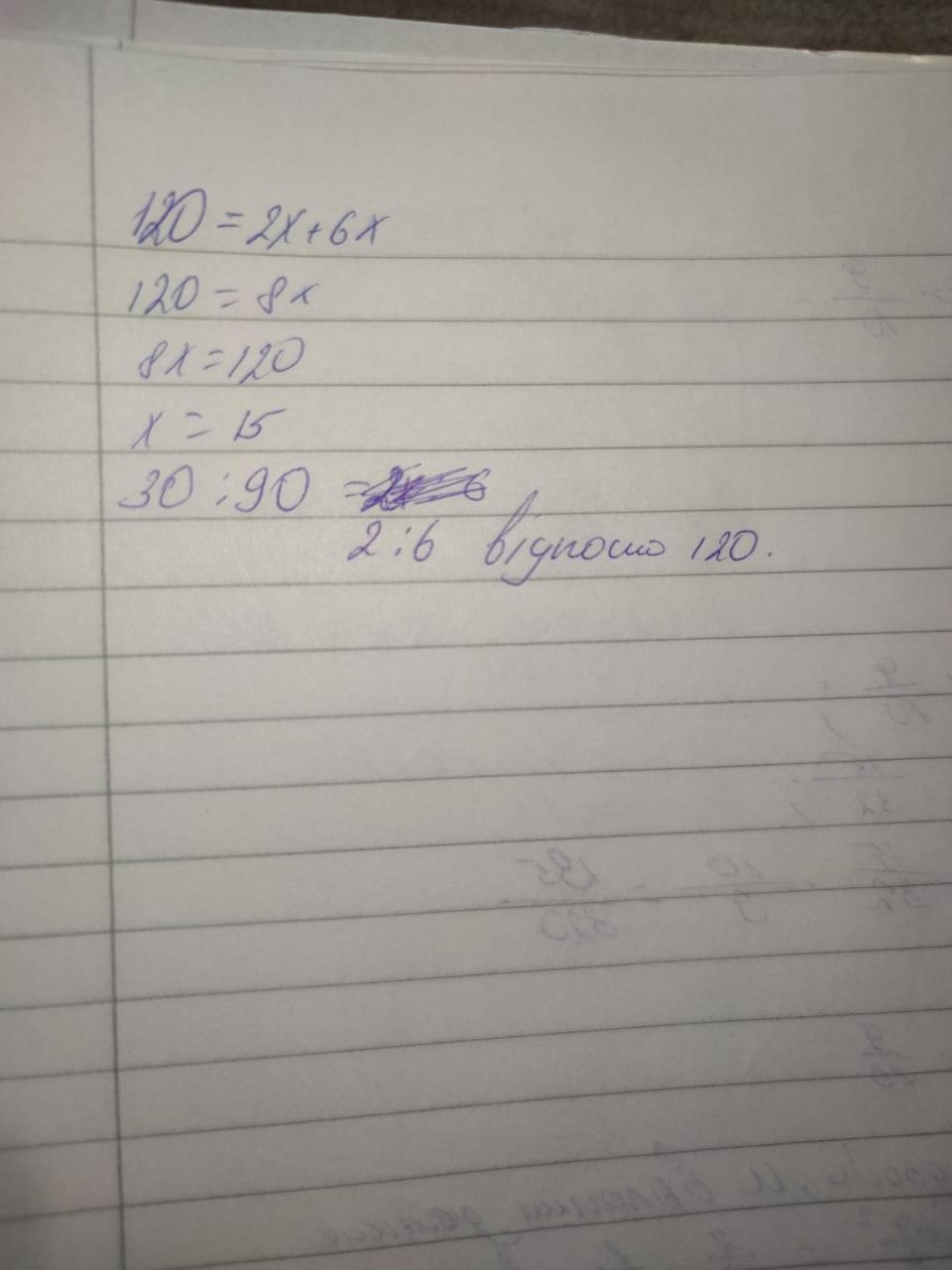Предмет: Математика,
автор: Аноним
Поділи число 120 у відношенні 2:6. Визнач ці числа.
Ответы
Автор ответа:
1
Ответ:
30 і 90
Пошаговое объяснение:
Приложения:

Похожие вопросы
Предмет: Русский язык,
автор: Евгений366
Предмет: Английский язык,
автор: missaki999
Предмет: Английский язык,
автор: missaki999
Предмет: История,
автор: verunya757
Предмет: География,
автор: mse1